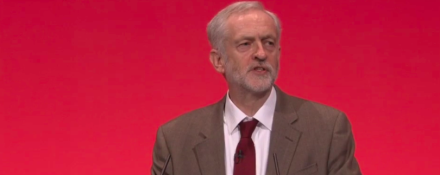
Ownership of public services is now – as it has been for some half a century – a political hot potato. Jeremy Corbyn continues to gain support from the public, if not from all members of his own party, on the basis of his commitment to public ownership of key industries and more direct forms of democracy. By combining these ideals – and countering accusations that he’d take the country on a Trotskyist ‘ideological joyride’ which returned us ‘to the early 80s’ – Corbyn has confirmed that he has never favoured the remote nationalised model that prevailed in the post-war era’. To the contrary, he prefers mutual and cooperative models of public service provision: ‘if you involve people as mutual participants in building their own future then you release their energy and enterprise’.
Mutuals and cooperatives are arguably the progressive centre-ground of public service provision, as they avoid bringing the ‘evils’ of a profit motive into the delivery of public goods while also allowing workers to be enterprising, and even competitive within a landscape of providers. However, the conservatives have previous for undermining militant left leadership at the local level by supporting and encouraging cooperative agendas, and now, they have a policy in place which could allow them to co-opt this debate in the next election.
The Coalition’s Localism Act contained a ‘Right to Provide’, linked to the ‘Community right to bid’. This allows public service workers to form mutual or cooperative organisations and then bid to provide a public service with relative autonomy from the state. In turn, the success or otherwise of the Right to Provide agenda could be used as a serious political point scorer, used to combat voices on the left which see innovations in public service as an austerity driven, neoliberal retreat of the state.
Admittedly, the story of the Right to Provide in practice isn’t great. LGA research revealed that only 8% of councils received requests from staff to set up employee-led organisations during 2012-2013. While 85% of these respondents said that these requests were subsequently supported by the council, only 10% of councils said they would be actively promoting employee-led organisations in 2013/2014. On average, 58% said that they would not be promoting them, with this rising to 77% in in shire districts. This is clearly a dismal performance, which likely reflects a lack of support by the incumbent government.
However, rather than attacking this policy for its failure, Labour must be prepared to present a coherent and constructive alternative which would allow this kind of agenda to succeed under their leadership. Labour councils should be identifying why this hasn’t progressed more, and what solutions are needed. Is the problem a lack of human resources? Are successful ventures forming networks which can help support others to set up? What can be learned from pioneers of the approach, like Lambeth Council? In the longer term, what kind of institutional infrastructure might be needed? Would this take the form of a national representation body – perhaps similar to the National Community Land Trust Network – which could collate expert knowledge and best practice; assist development of new MCPS; and ensure ongoing structured engagement with political bodies?
Presenting a clear and coherent voice on this issue is critical, given the amount of public confusion over party policy. With over half of Conservative voters, three quarters of UKIP voters, and three fifths of Lib Dem voters in favour of more public ownership, this will be a key issue in the lead up to the next election, which is ripe for the taking.



More from LabourList
Lou Haigh to reveal ‘roadmap’ for public ownership of railways within first term
Rochdale Labour says brick thrown at candidate’s home with ‘f*** Labour’ note
‘Frank’s poverty mission lives on at his charity – but he’d scrap two-child cap’